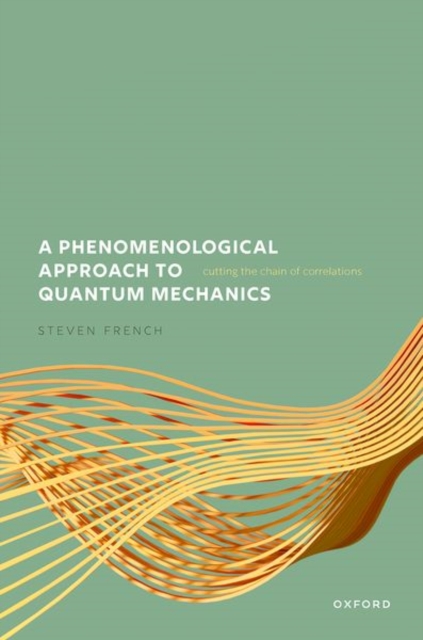
A Phenomenological Approach to Quantum Mechanics : Cutting the Chain of Correlations Hardback
by Steven (Emeritus Professor, Emeritus Professor, School of Philosophy, Religion and History o French
Hardback
Description
Steven French suggests a radical new approach to the understanding of quantum physics, derived from Husserl's phenomenological philosophy.
In 1939 two physicists, Fritz London and Edmund Bauer, published an account of measurement in quantum mechanics.
Widely cited, their 'little book' featured centrally in an important debate over the role of consciousness in that process.
However, it has been fundamentally misunderstood, both in that debate and beyond.
Steven French argues that London, in particular, approached the measurement process from the perspective of Husserlian phenomenology, which he had studied as a student and which he retained an interest in throughout his career.
This casts his work with Bauer in an entirely novel light and suggests a radical alternative understanding of quantum mechanics in which consciousness still plays a role but one that is fundamentally different than previously conceived.
Most interpretations of the theory approach it on the basis of the so-called 'analytic' tradition in philosophy.
However, there has recently been a surge of interest in 'continental' approaches and this book offers a significant new contribution to such developments.
Intertwining history and philosophy, it presents London's background in physics and phenomenology, together with an outline of the latter as developed by Husserl, Gurwitsch, Merleau-Ponty, and others, as well as a detailed analysis of the work on measurement with Bauer.
The book concludes by comparing the London and Bauer understanding with that afforded by Fuch's QBism, Everett's 'Many Worlds' interpretation, and Rovelli's Relational Quantum Mechanics.
It is hoped that this exploratory work will open up new avenues of thought with regard to one of our most fundamental physical theories.
Information
-
Less than 10 available - usually despatched within 24 hours
- Format:Hardback
- Pages:288 pages
- Publisher:Oxford University Press
- Publication Date:30/11/2023
- Category:
- ISBN:9780198897958
Information
-
Less than 10 available - usually despatched within 24 hours
- Format:Hardback
- Pages:288 pages
- Publisher:Oxford University Press
- Publication Date:30/11/2023
- Category:
- ISBN:9780198897958






